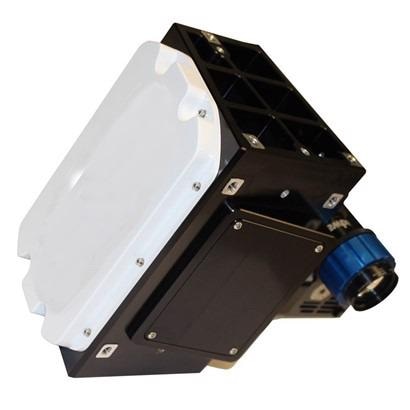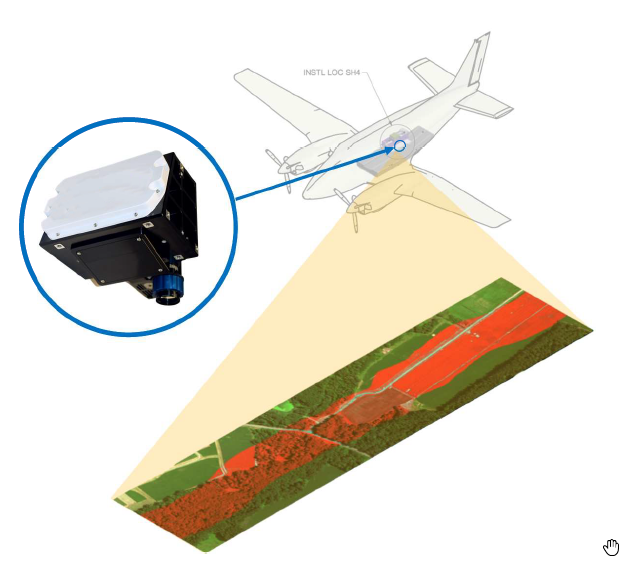The award-winning Hyperspec® Solar Induced Fluorescence (SIF) imaging sensor from Analytik is ideal for remote sensing, particularly plant and crop photosynthesis and climatology applications where high-resolution chlorophyll fluorescence measurements are vital.

Hyperspec® solar induced fluorescence imaging sensor (courtesy Headwall Photonics)
The push-broom sensor collects hyperspectral image data with 1,600 spatial pixels per line at extremely high spectral resolution (0.1-0.2nm full width at half maximum) across the chlorophyll fluorescence emission spectrum from 671nm to 780nm. This allows both the important ‘Oxygen-A’ and ‘Oxygen-B’ bands (O2-A and O2-B) to be exploited for more accurate insight into photosynthetic processes. With this data, environmental scientists can gain a better understanding of plant physiology and stress.
The sensor uses an all-reflective approach and high precision holographic diffraction gratings to deliver high signal-to-noise performance enabling routine capture of scientific-grade data across this critical spectral range.
The Hyperspec® SIF imaging sensor is purpose built for deployment on manned aircraft or for field-based work such measurements from environmental observation towers.
Hiran Vegad, Spectral Imaging Specialist at Analytik commented “As chlorophyll fluorescence signals are typically weak, a compact, high-performance imaging sensor that can remotely collect this data at very high resolution is a valuable tool when it comes to learning more about our global ecosystems.” He added, "global requirement for food and biofuels is rapidly evolving and growing year-on-year. Measurement of photosynthesis in real-time is critical to understanding factors that are beneficial or harmful when studying plant health, crop production and atmospheric carbon dioxide reduction. Symptoms can be detected using SIF before they become visible using other means”.

Illustrative image of operational Hyperspec®.
Demand for fluorescence imaging technology continues to increase in anticipation of the European Space Agency (ESA) FLEX mission due to launch in mid-2024. Organisations such as NASA, NEON (National Ecological Observatory Network), and major research universities worldwide have deployed or plan to deploy SIF instrumentation to provide ground-truthing calibration for image data produced by the FLEX mission. SIF data provided over time will enable the observation of environmental changes. The ESA states that “The potential of fluorescence to serve as an early indicator of stress – that is, before damage is irreversible – is a major aspect to be considered in the exploitation of FLEX measurements”.
For further information on the Hyperspec® solar induced fluorescence imaging sensor please visit https://analytik.co.uk/product/hyperspec-solar-induced-fluorescence-imaging-sensor/ or contact Analytik Ltd. on +44(0)1954 232 776 or email [email protected].